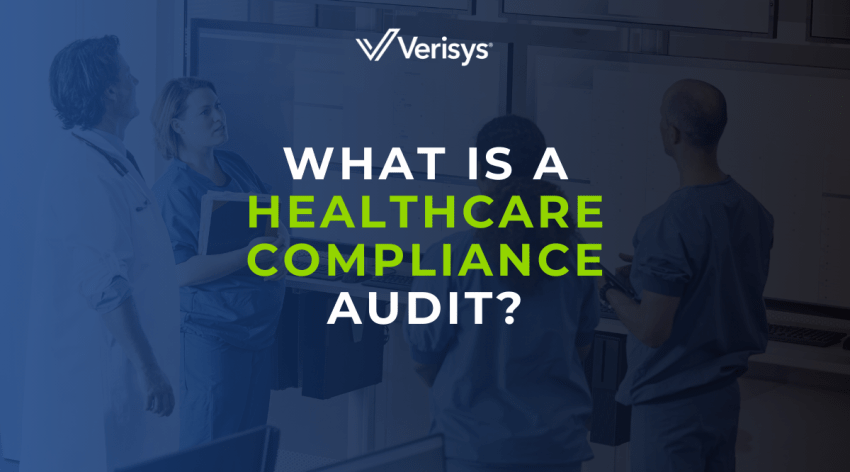– The best resource for monthly healthcare regulatory compliance updates. Compliance Updates: April 2024 Overlook: Licensure Compacts Other Legislation Board Updates Interstate Medical...


Healthcare is a high-risk industry; auditing is the systematic and objective process that mitigates risk. Healthcare compliance requires objectivity and accountability through independent review by a variety of auditing boards and institutions. A healthcare compliance audit evaluates strengths and weaknesses within a compliance program. Best compliance program practices also include exclusion screening for your providers, secure patient information technology, and optimized billing systems.
Healthcare compliance audits are accompanied by reports that specify corrective actions and process changes to maximize security and minimize risk. By following the processes, regulations, and laws related to healthcare compliance and implementing audit recommendations, institutions and providers can reduce error, improve patient safety, and provide the highest quality of care.
A healthcare compliance audit is a thorough review and examination of an organization’s adherence to regulatory guidelines. This type of audit is essential in the healthcare industry for several reasons:
It ensures that the healthcare organization complies with various federal and state laws and regulations. This includes adherence to standards set by the Health Insurance Portability and Accountability Act (HIPAA), the Centers for Medicare & Medicaid Services (CMS), Office of the Inspector General (OIG) and other regulatory bodies like the Joint Commission.
Compliance with state-specific healthcare laws and regulations is also assessed.
The audit evaluates if the healthcare organization follows billing and coding standards to prevent fraud and abuse.
HIPAA:
In the current healthcare landscape, information is king. Unfortunately, healthcare data is also valuable to criminals. Malicious attacks to gain patient information and breaches of Protected Health Information (PHI) are rising at alarming rates. In 2020, more large healthcare data breaches were reported than in any other year since The Health Information Technology for Economic and Clinical Health (HITECH) Act made healthcare data breaches public. With a 25% annual increase in breaches, healthcare institutions must fortify both their offenses and defenses. Processes and technology must be put in place to protect how health data is used, shared, and stored by organizations.
Over the last year, patient care methods have changed, including the significant rise in telehealth and the transfer of patient information via remote patient/provider visits and monitoring. With these changes, new HIPAA rules and regulations around technology prioritize patient privacy, regulating the use of technology and online prescribing standards.
Noncompliance holds severe penalties. If found in noncompliance, healthcare institutions risk fines, delays or denials of reimbursements, and litigation, which can include criminal charges and incarceration. To avoid financial and reputational risk, your healthcare organization should regularly conduct a HIPAA compliance audit to identify gaps in your data security and processes.
Noncompliance with the Office of the Inspector General (OIG) can also result in significant consequences including (but not limited to):
To help organizations navigate constantly changing state laws and compliance regulations, the OIG provides resources for healthcare compliance. The OIG advises that to stay up to date with changes, auditing and monitoring should be an ongoing process. Auditing and monitoring should include routine security maintenance and automated notifications to immediately identify weaknesses in your system and any potential threats to data security. By immediately identifying areas that require attention, healthcare organizations can safeguard both their organization and their patients from any harmful consequences.
The audit helps identify and mitigate risks associated with non-compliance, which can include legal penalties, financial losses, and damage to reputation.
Identifies areas where the organization is at risk of non-compliance, which could lead to legal issues or financial penalties. See What is the OIG Compliance? for more information.
Helps in developing strategies to mitigate these risks.
Includes an assessment of potential risks in patient care and safety.
Evaluates the effectiveness of current compliance programs and policies in managing these risks.
Often involves scenario analysis to understand the impact of potential compliance failures.
By ensuring compliance with healthcare standards, these audits contribute to maintaining or improving the quality of patient care.
Audits review patient care protocols, treatment plans, and the adherence to evidence-based medical practices.
Assesses the adequacy and effectiveness of patient care resources, including staffing and equipment.
Evaluates patient outcomes to ensure that the organization’s practices lead to favorable health results.
Monitors patient feedback and satisfaction as indicators of care quality.
The process often identifies areas for operational improvement, leading to more efficient and effective healthcare delivery.
Assesses the use of resources, including human resources, to ensure they are utilized optimally.
Looks into the management of patient records and data to ensure they are handled efficiently and securely.
Evaluates the supply chain and logistics for medical supplies and equipment.
Reviews billing and coding processes to ensure they are accurate and efficient.
Especially important in protecting patient information, compliance audits often focus on the organization’s adherence to data security standards.
Critical for protecting sensitive patient health information. Ensures that there are robust cybersecurity measures in place to protect against data breaches.
Evaluates compliance with HIPAA’s Privacy and Security Rules.
Reviews policies and procedures for data access, data storage, and data transmission.
Assesses employee training and awareness regarding data security and patient privacy.
Healthcare compliance audits are typically conducted by internal teams or external auditors. They involve a review of policies, procedures, training records, patient records, billing practices, and other areas relevant to healthcare compliance. These audits are crucial for maintaining the integrity and reputation of healthcare organizations, ensuring that they provide safe, high-quality, and efficient care while adhering to necessary legal and ethical standards.
Let Verisys help keep you and your organization compliant! Reach out to our team of experts to learn more.